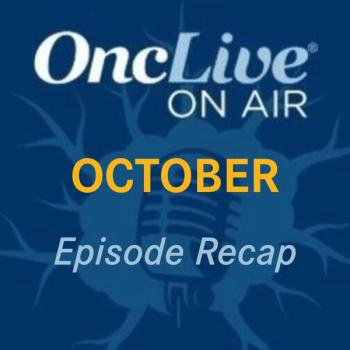
The UK MHRA approved frontline toripalimab plus chemotherapy for recurrent/metastatic NPC, as well as for advanced, recurrent, or metastatic ESCC.

Your AI-Trained Oncology Knowledge Connection!


Associate Editor, OncLive
Ashling Wahner joined MJH Life Sciences in 2022. She produces OncLive's podcast, OncLive On Air, and helps ensure timely publication of news content and announcements from the FDA approval pipeline. She also attends conferences live and virtually to conduct video interviews and produce written coverage. Email: awahner@mjhlifesciences.com

The UK MHRA approved frontline toripalimab plus chemotherapy for recurrent/metastatic NPC, as well as for advanced, recurrent, or metastatic ESCC.

The FDA approved the FoundationOne Liquid CDx to identify patients with mNSCLC with MET exon 14 skipping alterations who may be eligible for tepotinib.

The EMA’s CHMP has issued a positive opinion for the denosumab biosimilars SB16 for all indications referencing Prolia and Xgeva.

Mark Awad, MD, PhD, and Jonathan Spicer, MD, PhD, discuss the FDA approval of perioperative nivolumab for patients with resectable NSCLC.

Health Canada has approved momelotinib for the treatment of splenomegaly and/or disease-related symptoms in myelofibrosis with moderate-to-severe anemia.

Kari Wisinski, MD, highlights treatments for HER2– breast cancer, the role of chemotherapy in TNBC, and the benefits of T-DXd for brain metastases.

Early cytokine induction after CAR T-cell therapy infusion predicts CAR expansion in patients with leukemia or lymphoma treated with axi-cel or brexu-cel.

Treatment with magrolimab plus docetaxel led to peripheral CD47 saturation in patients with advanced NSCLC, which correlated with improved outcomes.

Radiomic biomarkers can predict treatment response through assessments of tumor growth in patients with metastatic uveal melanoma treated with roginolisib.

Kari Wisinski, MD, discusses factors that influence her decision between CDK4/6 inhibitors for patients with treatment-naive, HR+ metastatic breast cancer.

Christina S. Baik, MD, MS, discusses the types of HER2 testing that should be performed in NSCLC and the design of the phase 3 Beamion LUNG-2 trial.

Tanios S. Bekaii-Saab, MD, discusses the evolving role of RAS-targeted therapies in pancreatic cancer and where future research in the field may be headed.

Lasofoxifene was well tolerated and had early activity signals in patients with HR-positive, HER2-negative, locally advanced breast cancer.

Ameluz-PDT generated statistically significant target lesion clearance outcomes vs placebo-PDT in superficial basal cell carcinoma.

In case you missed any, read a recap of every episode of OncLive On Air that aired in October 2024.

Laura J. Chambers, DO, discusses the roles of niraparib and olaparib in ovarian cancer and the importance of patient communication throughout treatment.

Douglas W. Sborov, MD, MS, discusses where ide-cel and cilta-cel each fit into the myeloma treatment paradigm.

Jairam Krishnamurthy, MD, FACP, discusses the selective use of CDK4/6 inhibitors after prior progression on these agents in patients with breast cancer.

Nivolumab plus AVD prolonged median PFS vs brentuximab vedotin plus AVD in patients with stage III or IV advanced-stage classic Hodgkin lymphoma.

Jairam Krishnamurthy, MD, FACP, discusses factors that influence his choice between ribociclib and abemaciclib in the adjuvant breast cancer setting.

Jorge Cortes, MD, discusses findings with bosutinib in CML and the importance of dose adjustment as a strategy for managing bosutinib-related AEs.

ONCT-534 reduced prostate-specific antigen levels in patients with relapsed/refractory metastatic castration-resistant prostate cancer.

John H. Strickler, MD, highlights the mechanism of action of telisotuzumab adizutecan and the rationale for targeting c-Met in colorectal cancer.

Alan Tan, MD, discusses the nuances of navigating combination regimens for patients with advanced renal cell carcinoma.

Tafasitamab plus lenalidomide followed by tafasitamab monotherapy has been approved in Mexico for ASCT-ineligible, relapsed/refractory DLBCL.

Oncology experts share notable clinical trials and up-and-coming therapies presented at the 2024 ESMO Congress.

Retreatment with venetoclax plus rituximab generated responses in patients with CLL who had responded to and progressed after initial venetoclax treatment.

Jacqueline Brown, MD, discusses the nuanced potential role of immunotherapy-ADC and dual-ADC combinations in bladder cancer.

LP-184 has received fast track designation from the FDA for the treatment of patients with glioblastoma.

Lurbinectedin plus atezolizumab produced significant OS and PFS benefits as frontline maintenance for extensive-stage small cell lung cancer.